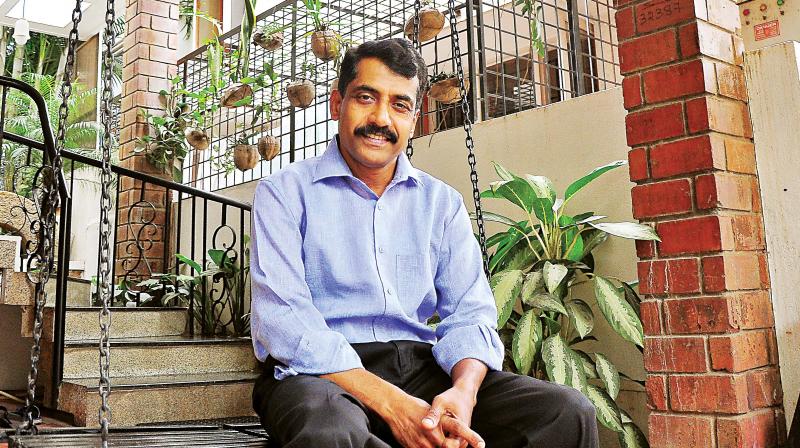DC's Gamechangers: Shivakumar - This Varuna harvests the rain
If the tanks are full, rainwater is diverted and percolates into the ground, where four recycled, interconnected drums have been buried.

A.R. Shivakumar's has championed sustainable living for years and his charming, brick-walled home, Sourabha, in Vijayanagar, is at the epicentre of his life's work. The Principal Investigator of the Rainwater Harvesting Project with the Karnataka State Council for Science and Technology, A.R. Shivakumar hasn't paid a water bill in years! Not a drop goes to waste in his home's rainwater harvesting system, with the water being used for all purposes aside from drinking.
"A 40x60 site in Bengaluru receives about 2 lakh litres of rainwater during a normal monsoon. This can be stored for domestic use and to recharge groundwater." And it can be done, too. Shivakumar has designed rainwater harvesting plants for the Vidhana Soudha and the High Court, making both buildings completely self-sufficient. "Bengaluru receives 21 TMC of rain each year and the BWSSB draws 19 TMC from the Cauvery. Harvesting even half our rainwater might free us of shortages."
Sourabha was built in 1994 and its rainwater harvesting system installed a year later. "The majority of the rainwater falling on the roof is channelled toward the northern side of the house and flows into a 4,500 litre tank." A PopUp filter, one of Shivakumar's inventions, placed with a stabilisation tank, filters the water before it is stored.
If the tanks are full, rainwater is diverted and percolates into the ground, where four recycled, interconnected drums have been buried to act as an infiltration gallery. "Our family requires around 400 litres of water a day, excluding the toilet flush, which uses recycled water," he said. This is made from soap water discharged by the washing machine, which is stored in an underground tank and then pumped up onto he roof. Water that flows through the kitchen sink is used for gardening.
Self-sufficiency is an attainable goal for Bengaluru, where trouble lies in storing water. "Rainwater harvesting can considerably reduce the pressure on the Cauvery, says Shivakumar. "Many developed countries, including Singapore, never let rainwater enter the see. There are structures in place to tap every single drop. These are the solutions Bengaluru needs to look at very seriously if they hope to avert the impending crisis," he remarks, adding, "In Bengaluru, which has over 18 lakh properties, only one lakh opt for rainwater harvesting."

